As a BetterHelp affiliate, we receive compensation from BetterHelp if you purchase products or services through the links provided
Anxiety is a common mental health concern that affects millions worldwide. As our lives become increasingly busy and stressful, finding effective ways to relieve anxiety has become increasingly important. While traditional treatments such as medication and therapy can be helpful, many individuals seek more natural ways to cope with their anxiety.
There has been growing interest in exploring natural alternatives for anxiety relief in recent years. These alternatives include lifestyle changes, meditation practices, and natural supplements, which can offer significant benefits without the side effects of medication. By incorporating these natural remedies, individuals can proactively manage their anxiety, improving their overall mental health and well-being.
Key Takeaways
- Natural alternatives can provide anxiety relief without medication’s side effects.
- Lifestyle changes, meditation, and supplements are methods for managing anxiety.
- Embracing natural remedies promotes proactive mental health and well-being.
 Understanding Anxiety
Understanding Anxiety
Anxiety is a natural response to stress and unfamiliar situations, characterized by feelings of worry, nervousness, and apprehension. While everyone experiences anxiety at some point, chronic anxiety can develop into anxiety disorders, mental health conditions affecting millions worldwide.
Generalized anxiety disorder (GAD) is one of the most common anxiety disorders, characterized by excessive worry and anxiety about everyday issues. People with GAD may find themselves constantly fretting about various aspects of their lives – from work, personal relationships to health concerns.
Anxiety symptoms vary from person to person, but common signs include restlessness, irritability, difficulty concentrating, sleep problems, and persistent worry. Emotions can also play a significant role in anxiety, as individuals might feel overwhelmed and struggle to cope with day-to-day tasks.
It is essential to distinguish between normal anxiety and anxiety disorders, as the latter requires attention from mental health professionals. While nervousness and worry are common during challenging situations, chronic anxiety indicates a deeper issue that should be addressed to maintain overall well-being.
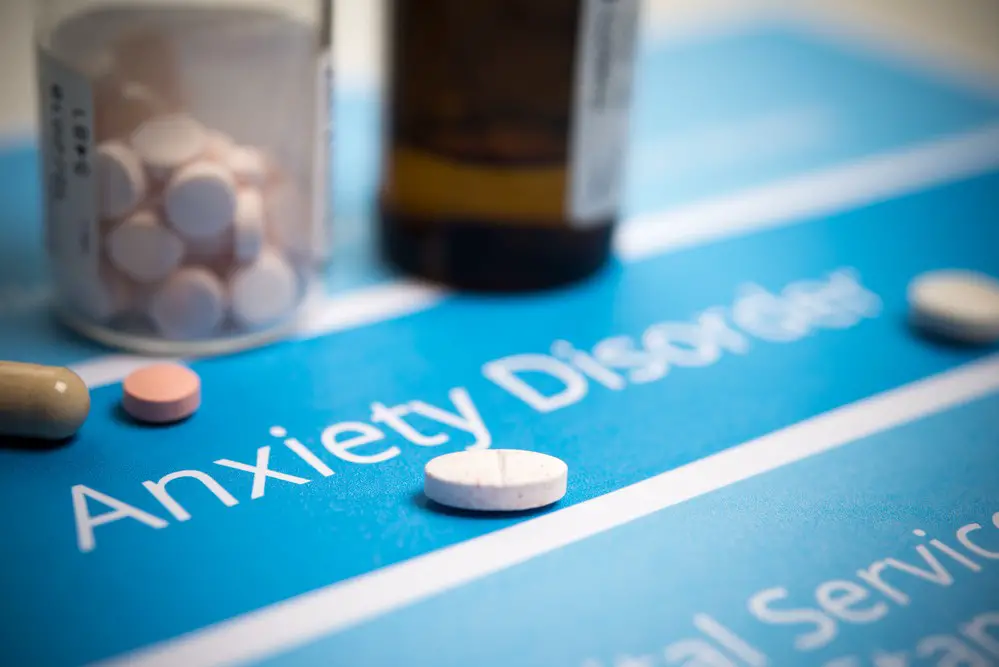
Medical Treatments for Anxiety
When treating anxiety, doctors often create a comprehensive plan tailored to the individual’s needs. This plan typically includes therapy, lifestyle changes, and, sometimes, prescription medication.
One common therapeutic approach for addressing anxiety is cognitive-behavioral therapy (CBT). This form of therapy helps individuals recognize and change negative thought patterns and behaviors that contribute to their anxiety. CBT focuses on teaching coping mechanisms and problem-solving skills to reduce future anxiety symptoms.
In addition to therapy, specialists may recommend medication as part of the treatment plan. There are several types of anti-anxiety medications available, such as benzodiazepines, which are typically prescribed for short-term relief of acute anxiety and panic attacks. Antidepressants, such as selective serotonin reuptake inhibitors (SSRIs) or serotonin-norepinephrine reuptake inhibitors (SNRIs), may also be prescribed to help manage chronic anxiety and related symptoms.
It is important for those experiencing anxiety to consult their doctor about possible treatment options. A thorough assessment, including a review of the individual’s symptoms, medical history, and overall health, will help determine the most appropriate course of action. Depending on the type and severity of anxiety, treatment plans may vary, and it may take some time to find the most effective approach.
Insomnia, common among individuals with anxiety, can also be addressed through therapy and medication. For example, doctors may suggest incorporating relaxation techniques or sleep hygiene habits into one’s routine and sometimes prescribe sleep aids for short-term relief.
In conclusion, medical treatments for anxiety can be an integral part of a personalized plan that focuses on therapy, lifestyle changes, and medication as needed. Individuals experiencing anxiety should discuss their symptoms and concerns with a healthcare specialist to determine the most appropriate action.
 Natural Remedies for Anxiety Relief
Natural Remedies for Anxiety Relief
Anxiety can be overwhelming, but several natural remedies can offer relief. Incorporating these measures into your daily routine can help improve your overall mental health and well-being.
Lavender is a popular choice among essential oils, known for its calming properties. Inhaling the scent of lavender can reduce anxiety symptoms by promoting relaxation. Similarly, chamomile can help ease anxiety symptoms and even improve sleep quality. Chamomile tea is a great option to consider as a natural remedy for anxiety relief.
Lemon balm is another herb found to alleviate anxiety and stress. It can be consumed as a tea or used as an essential oil. Additionally, kava is traditionally used for its calming effects and can be ingested as a tea or supplement.
Incorporating magnesium-rich foods into your diet can also aid in anxiety relief. Foods such as spinach, almonds, and avocado provide essential nutrients that help maintain a healthy nervous system and promote relaxation. Following a balanced diet can greatly contribute to improved mental health.
Besides dietary changes, yoga and deep breathing exercises are highly effective methods for reducing anxiety. Both techniques help focus the mind on the present moment while promoting physical and mental relaxation.
Passionflower is another potent herbal remedy for anxiety relief. It can be consumed as tea or in capsule form to help ease anxiety symptoms. Before using any herbal remedies, consult a healthcare professional, as some herbs may interact with medications or cause side effects.
In conclusion, natural remedies for anxiety relief can be highly effective when used consistently and responsibly. Combining essential oils, dietary changes, physical practices, and herbal remedies can improve mental health and well-being.
 Positive Lifestyle Changes
Positive Lifestyle Changes
Incorporating positive lifestyle changes can significantly alleviate anxiety and improve overall well-being. One essential area to focus on is managing work-life balance. Taking breaks and avoiding overworking is vital, as burnout can exacerbate anxiety. Establishing clear boundaries between work and personal life can help reduce stress.
Another critical factor for anxiety relief is exercise and physical activity. Regular exercise, such as taking walks or participating in sports, releases endorphins, which help mitigate anxiety. Additionally, exercise has been proven to improve sleep quality by promoting relaxation and reducing stress.
Sleep is crucial for mental and emotional health. Ensuring a routine sleep schedule and maintaining a healthy sleep environment can significantly reduce anxiety. Aiming for 7-9 hours of uninterrupted sleep each night is advised.
Monitoring thoughts and practicing mindfulness can also be beneficial for reducing anxiety. Techniques like journaling or writing can help individuals process their feelings and thoughts. This self-reflective practice enables a greater understanding of emotions, which can help manage anxiety.
Diet plays a vital role in mental health as well. A balanced diet that includes fruits, vegetables, whole grains, lean proteins, and healthy fats can positively impact anxiety levels. Limiting caffeine and alcohol intake can also assist in maintaining stable energy levels and preventing sudden mood swings.
In summary, adopting positive lifestyle changes incorporating a healthy balance of work, exercise, sleep, mindfulness, and diet can significantly help reduce anxiety and improve overall well-being.
Anxiety and Diet
A well-balanced diet is crucial for mental health and can significantly affect anxiety levels. Incorporating specific nutrients into one’s daily menu can help alleviate anxiety symptoms and promote overall well-being.
Supplements can play a significant role in anxiety relief by providing essential nutrients that may be missing from an individual’s diet. Adequate water intake is also crucial, as staying hydrated contributes to maintaining mental clarity and reducing stress.
B vitamins are essential for nervous system function and energy production. A deficiency in these vitamins can lead to increased stress and anxiety. Foods rich in B vitamins include whole grains, beans, nuts, seeds, and leafy green vegetables. Supplementing one’s diet with a B-complex vitamin can also help bridge nutritional gaps.
Chocolate, specifically dark chocolate, contains an amino acid called tryptophan, a precursor to serotonin, a neurotransmitter known to provide a calming effect. Consuming a small amount of dark chocolate can help improve mood and decrease anxiety. However, moderation is crucial as excessive chocolate consumption can lead to weight gain and other health issues.
To sum it up, maintaining a healthy diet that includes essential nutrients such as supplements, adequate water intake, B vitamins, and moderate chocolate consumption can be a natural way to mitigate anxiety and promote overall mental well-being.
 Impact of Stimulants and Relaxants
Impact of Stimulants and Relaxants
Stimulants and relaxants can have varying effects on an individual’s anxiety levels. One factor is the direct impact on the body’s stress response mechanism. Some substances might help alleviate stress, while others could exacerbate anxiety symptoms.
Caffeine is a common stimulant in coffee, tea, and energy drinks. Moderate caffeine consumption might help improve concentration and energy levels for some individuals. However, excessive caffeine intake has been linked to increased stress and anxiety. Individuals prone to stress or anxiety should monitor their caffeine consumption.
Alcohol, on the other hand, is a depressant, meaning it slows down the central nervous system. Some people might consume alcohol as an attempt to relax and reduce feelings of stress. While alcohol could provide initial feelings of calmness, excessive consumption might worsen anxiety and stress levels in the long term.
Smoking cigarettes is another lifestyle choice that could impact an individual’s anxiety levels. Nicotine, the primary active cigarette component, is a stimulant and relaxant. Short-term nicotine consumption could produce feelings of relaxation, but its long-term use is associated with increased stress and anxiety levels.
Pain and its management can also affect an individual’s anxiety levels. Some strategies, such as prescription medications or physical therapy, might help alleviate pain and, in turn, reduce anxious feelings. However, over-reliance on pain-relieving substances could increase anxiety, especially if the underlying cause of pain is left untreated.
In summary, the influence of stimulants and relaxants on anxiety levels varies depending on the substance, dosage, and individual reactions. Moderate consumption and awareness of one’s stress response to these substances are crucial to achieving natural anxiety relief. Individuals must work with healthcare professionals to find the most suitable strategies to address anxiety-related concerns.
 The Role of Mindfulness and Meditation
The Role of Mindfulness and Meditation
Practicing mindfulness and meditation can be powerful for managing stress and reducing anxiety. These methods encourage individuals to focus on the present moment, gradually enabling them to gain control over their thoughts and emotions.
One essential aspect of mindfulness is observing thoughts, feelings, and sensations without judgment. By doing so, individuals can develop a greater sense of self-awareness, thereby reducing the mental turbulence associated with anxiety. Some common mindfulness exercises include mindful breathing or a body scan, allowing the person to bring their attention to their physical sensations.
Meditation, a complementary practice, involves dedicating time to concentrate on a specific focus, such as the breath or a comforting mantra. Regularly practicing meditation can help individuals develop a more profound sense of relaxation and tranquility. Deep breathing exercises can further enhance these feelings, allowing individuals to slow their heart rate and regulate their breathing patterns.
Over time, consistent meditation and mindfulness practices can yield many benefits, including:
- Improved focus and concentration
- Lowered levels of anxiety and stress
- Greater emotional regulation
- Enhanced self-awareness
Incorporating mindfulness and meditation into a routine can be an invaluable resource in alleviating anxiety. Individuals can develop effective coping strategies to manage their mental health by fostering a calm and self-reflection environment.
 Understanding and Managing Panic Disorders
Understanding and Managing Panic Disorders
Panic disorders are characterized by recurrent, unexpected episodes of intense fear known as panic attacks. These sudden episodes can be triggered by various situations or stress and might cause physical symptoms such as increased heart rate, shortness of breath, and dizziness.
One of the key aspects of managing panic disorders is identifying the triggers and avoiding situations that might lead to panic attacks. If this is not possible, learning coping strategies to deal with the panic and tension that arise is crucial. Some helpful techniques include deep breathing exercises, progressive muscle relaxation, and grounding techniques to refocus attention on the present moment.
Another essential aspect of treating panic disorders is seeking professional help. A mental health professional, such as a therapist or psychiatrist, can offer guidance, support, and various treatment options. Cognitive-behavioral therapy (CBT) has shown promising results in helping individuals recognize and change unhealthy thought patterns associated with panic attacks.
In addition to therapy, medication might be prescribed to help manage symptoms and reduce the frequency of panic attacks. Selective serotonin reuptake inhibitors (SSRIs) and benzodiazepines are commonly prescribed medications for treating panic disorders.
Several self-help strategies can help manage panic disorders, such as:
- Practicing regular physical activity to reduce overall tension and stress
- Ensuring adequate sleep to maintain mental health
- Consuming a balanced diet to nourish the body and support the nervous system
- Reducing caffeine intake, as it can exacerbate anxiety symptoms
- Engaging in relaxation techniques like yoga, meditation, or mindfulness practices.
While panic disorders can be overwhelming and cause significant distress, understanding the condition and implementing effective coping strategies can greatly improve the quality of life for individuals suffering from these anxiety issues.
 Coping with Social Anxiety
Coping with Social Anxiety
Social anxiety, or social anxiety disorder, affects millions of people worldwide. It can manifest as fear or discomfort in social situations, leading to avoidance and significant distress. Fortunately, there are natural ways to cope with social anxiety.
Practice mindfulness: Mindfulness techniques, such as deep breathing exercises and meditation, can help individuals focus on the present moment and reduce the impact of anxiety-provoking thoughts. Mindfulness can provide immediate relief in social situations and help build resilience.
Engage in regular physical activity: Exercise has been shown to reduce anxiety and improve overall mental health. A balanced fitness routine, including cardiovascular exercises and strength training, can help relieve social anxiety symptoms and boost self-confidence.
Nurture social connections: Building a supportive network of friends and family can mitigate the effects of social anxiety. Engaging in activities and conversations with empathetic and understanding individuals can help create a safe space to practice social skills and combat feelings of isolation.
Limit caffeine and alcohol: Studies have shown that excessive consumption of caffeine and alcohol can exacerbate social anxiety. Instead, opt for healthier alternatives like herbal teas and water to maintain mental clarity and minimize anxiety triggers.
Try natural supplements: Some herbs and natural supplements, such as valerian root, passionflower, and lemon balm, have been shown to relieve anxiety symptoms. It is essential to consult with a healthcare professional before introducing any new supplements into the daily routine.
By incorporating these strategies into everyday life, individuals struggling with social anxiety can find relief and improve their overall mental well-being. It’s important to remember that progress takes time and consistency, but individuals can overcome social anxiety and lead fulfilling lives with dedication and support.
Natural Supplements for Anxiety
Anxiety affects many people, and often they seek relief through natural means. Several herbal supplements and natural remedies are effective in managing anxiety. This section will explore some of the most popular natural supplements for anxiety relief.
CBD (Cannabidiol): CBD is a compound derived from the cannabis plant known for its potential health benefits. Research has shown that CBD may have anxiolytic properties, making it a popular option for those seeking a natural approach to anxiety relief. CBD oil can be consumed as it is or added to food and beverages.
Kava: Kava is a plant native to the South Pacific and has been used for centuries for its calming and anxiolytic effects. Kava supplements have been found to help reduce anxiety and may even provide a sense of relaxation and mental clarity. It is important to note that excessive kava consumption can lead to liver damage, so it is essential to follow recommended dosages and consult with a healthcare professional.
Herbal Supplements: Many herbal supplements have been said to help with anxiety symptoms. Some well-known herbal supplements include:
- Valerian root: Often used for sleep disorders, valerian root may also help reduce anxiety levels.
- Passionflower: This plant has been studied for its potential to reduce anxiety and help with related sleep issues.
- Lemon balm: Lemon balm is known for its calming effects and is often used in teas or supplements to manage anxiety.
- Ashwagandha: An adaptogenic herb, ashwagandha has been shown to help reduce stress and anxiety and promote overall well-being.
It is essential to remember that not every supplement works for everyone, and individual responses can vary. Always consult a healthcare professional before starting any supplement regimen, as some supplements may interact with medications or have potential side effects. With the proper guidance and moderation, natural supplements can be a helpful addition to an anxiety management plan.
Understanding Generalized Anxiety Disorder
Generalized Anxiety Disorder (GAD) is a common mental health condition characterized by excessive worry and fear about everyday situations. Individuals with GAD often experience constant anxiety and find it challenging to control their worries, impacting their daily lives and functioning.
GAD can develop gradually, and its symptoms may vary from person to person. Typically, symptoms include restlessness, feeling on edge, difficulty concentrating, irritability, muscle tension, and sleep disturbances. To be diagnosed with GAD, these symptoms must be present for more than six months and cause significant distress or impairment in daily activities.
The exact cause of GAD is unknown, but factors such as genes, brain chemistry, and environmental stressors are believed to contribute to the development of the disorder. Moreover, GAD often co-occurs with other mental health disorders, such as depression and panic disorder, making it essential for treatment to address any co-existing conditions.
Treatment for GAD usually involves a combination of medication and therapy. Cognitive-behavioral therapy (CBT) is a common and effective therapy for GAD, focusing on changing negative thought patterns and developing healthy coping strategies. Medication, such as antidepressants and anti-anxiety medications, can also help manage symptoms. Additionally, lifestyle changes like regular exercise, stress reduction, and a balanced diet can improve overall wellbeing and anxiety relief.
While living with GAD can be challenging, it’s important to remember that effective treatments are available. By seeking professional help and implementing appropriate coping strategies, individuals with GAD can manage their symptoms and lead fulfilling lives.
 Cognitive Behavioral Therapy for Anxiety
Cognitive Behavioral Therapy for Anxiety
Cognitive behavioral therapy (CBT) is an effective approach to anxiety relief that focuses on identifying and changing negative thought patterns and behaviors. CBT involves a combination of cognitive therapy, which helps individuals understand how their thoughts affect their emotions, and behavioral therapy, which aims to modify problematic behaviors.
CBT can help individuals with anxiety learn new ways of thinking and develop coping strategies for stressful situations. The guiding principle behind this therapy lies in the belief that our thoughts, feelings, and behaviors are interconnected, and changing one can impact others. To learn more about the underlying principle of CBT, you can read our article, What Principle Underlies Cognitive Behavioral Therapy?
During CBT sessions, the therapist and the patient work together to identify the specific thought patterns and behaviors contributing to the individual’s anxiety. Once these negative patterns are recognized, the therapist helps the patient develop skills and techniques to counteract them, such as challenging irrational beliefs or implementing relaxation techniques.
Cognitive behavioral therapy has proven effective in treating various anxiety disorders, including generalized anxiety disorder, social anxiety disorder, and panic disorder. Many individuals who undergo CBT experience a significant reduction in their anxiety symptoms, which can contribute to an improved quality of life.
In summary, CBT offers a practical approach to anxiety relief by targeting the thoughts and behaviors perpetuating anxiety. It provides individuals with tools and techniques to better manage their anxiety symptoms, leading to increased confidence and well-being.

Role of Pets in Anxiety Relief
Pets play a significant role in providing natural care for anxiety relief. The presence of animals, particularly dogs, and cats, has been proven to impact people suffering from anxiety disorders positively. Their companionship offers comfort, support, and a sense of security, which can help alleviate anxiety symptoms.
One popular method to counter anxiety is puppy therapy, which uses cuddles and companionship to help combat stress and anxiety. These therapeutic sessions involve interacting with puppies known for their affectionate and playful nature. Their warmth and unconditional love create a calming and soothing environment, enabling individuals to relax and feel at ease.
In addition to providing emotional support, pets encourage physical activity, an effective way to manage anxiety. For instance, taking a dog for a walk or engaging in a game of fetch can exercise the body and release endorphins that help elevate mood and reduce stress.
Moreover, caring for a pet instills a sense of purpose and routine, which is essential for maintaining mental well-being. This structured lifestyle helps to anchor individuals, ultimately promoting stability and reducing anxiety symptoms.
In conclusion, pets hold immense potential to provide natural anxiety relief. Their companionship and the responsibility and physical activity they bring make them valuable allies in combating stress and maintaining mental health.
The Role of Aromatherapy in Anxiety Relief
Aromatherapy is a popular method for alleviating anxiety and promoting relaxation. It involves using essential oils, and concentrated plant extracts, such as flowers, roots, and leaves. These oils possess various properties that can positively impact emotional well-being.
One of the most well-known essential oils for anxiety relief is lavender. This calming fragrance has been proven to help reduce stress and induce a sense of tranquility. A study on individuals exposed to lavender essential oil revealed a significant decrease in anxiety levels compared to those not exposed to the aroma. Incorporating lavender into an aromatherapy routine can aid in achieving a peaceful state of mind.
There are various ways to use essential oils in aromatherapy, such as diffusing them in the air with a diffuser or adding a few drops to a warm bath. Essential oils can also be applied topically by diluting them with carrier oil and massaging them onto the skin. However, it is essential to conduct a patch test to avoid any allergic reactions.
Aromatherapy can be easily combined with other natural forms of anxiety relief, such as flower therapy, which utilizes the healing properties of flowers to support emotional balance. The harmonious blend of essential oils and flower essences has the potential to create a comprehensive approach to managing anxiety and stress, enhancing overall mental well-being.
In conclusion, incorporating aromatherapy, focusing on essential oils like lavender, into a daily routine can reduce anxiety and stress. By combining various application methods with complementary therapies such as flower therapy, individuals can harness the power of nature in their quest for emotional balance and tranquility.
Exposure to Nature and Anxiety Relief
Incorporating nature exposure into one’s daily routines can prove beneficial for managing anxiety. Studies have indicated that spending time in natural environments positively impacts mental well-being. When the serenity of nature surrounds an individual, it allows their mind to relax, reducing stress levels and overall enhanced mood.
One simple way to immerse oneself in nature is by walking in the park, around their neighborhood, or even in a nearby forest. Walking encourages physical activity and enables the individual to connect better with the environment. The sensory experiences of birds chirping, leaves rustling and the fragrance of fresh air contribute to anxiety relief.
Moreover, engaging in outdoor activities such as hiking, gardening, or even sitting on a park bench can significantly improve mental health. These activities allow people to disconnect from their hectic schedules and find solace in the tranquility of the natural environment.
In addition, incorporating plants or natural elements into one’s personal living space enables better indoor air quality and promotes a sense of connection with nature. This can be achieved by placing potted plants, rocks or using natural materials in home décor.
Incorporating exposure to nature into one’s daily routines is an accessible and effective method of anxiety relief, fostering mental well-being and promoting healthier lifestyles.
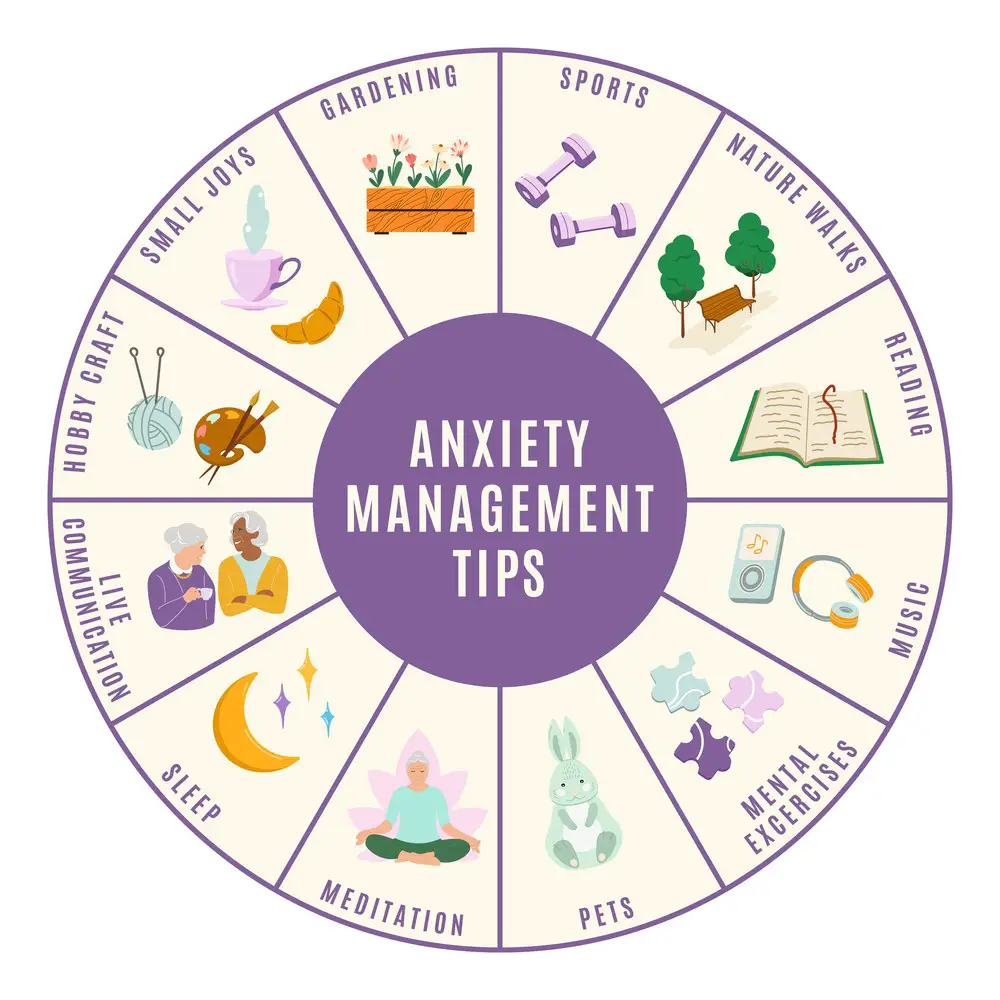
Understanding Depression and Anxiety
Depression and anxiety are common mental health disorders that can significantly impact a person’s well-being. They often co-occur, and it’s essential to understand their symptoms and causes to manage them effectively.
Depression is characterized by persistent sadness, hopelessness, and a lack of interest in once-enjoyable activities. It can lead to physical symptoms, such as fatigue, sleep disturbances, and appetite changes. Anxiety, on the other hand, is characterized by excessive worry, fear, or nervousness. It can manifest in physical symptoms like heart palpitations, shortness of breath, and restlessness.
Various factors can contribute to the development of these mental health disorders. They include genetics, brain chemistry, personality traits, and environmental factors, such as traumatic experiences or chronic stress. It is important to recognize that there is no single cause for depression or anxiety; instead, it is often a combination of these factors.
Treatment options for depression and anxiety include therapy, medication, and lifestyle changes. Some people benefit from combining these treatments, while others may find relief through just one method. Individuals must consult a mental health professional to determine the most effective treatment plan for their needs.
In addition to professional help, natural remedies, and self-care practices can be incorporated into daily life to help manage symptoms. These include:
- Regular exercise, which has been shown to improve mood and reduce anxiety
- Mindfulness and meditation techniques that promote relaxation and focus
- Proper sleep habits to ensure adequate rest and recovery
- Nutritional choices that support mental health, such as consuming omega-3 fatty acids and minimizing processed foods
- Connecting with a supportive network of friends and family members for emotional support
Understanding the complexities of depression and anxiety is vital in developing effective strategies for managing and overcoming these mental health challenges. By utilizing a combination of professional guidance, medication, and natural self-care practices, individuals can work towards improving their mental health and overall well-being.
 Hands-On Therapies for Anxiety Relief
Hands-On Therapies for Anxiety Relief
Hands-on therapies can be an effective way to relieve anxiety. One such approach is massage therapy, which has been shown to reduce stress and anxiety levels. During a massage, a trained therapist manipulates the body’s soft tissues, helping to ease tension and promote relaxation. Studies have shown that regular massage therapy sessions can help alleviate anxiety symptoms and improve overall mental health.
Psychotherapy is another hands-on approach that can help individuals struggling with anxiety. In particular, cognitive-behavioral therapy (CBT) has been proven effective in treating various anxiety disorders. CBT involves working with a therapist to identify and change negative thought patterns and behaviors contributing to anxiety. By learning new coping strategies, individuals can better manage their anxiety symptoms and improve their overall quality of life.
Another hands-on therapy that can help with anxiety relief is acupressure. This ancient technique involves applying pressure to specific points on the body to stimulate energy flow and promote relaxation. Acupressure can be performed by a trained practitioner or even self-administered. Research suggests that acupressure can help reduce anxiety symptoms and improve mood, making it a valuable tool in the natural care anxiety relief toolkit.
In conclusion, hands-on therapies such as massage, psychotherapy, and acupressure can naturally relieve anxiety. Incorporating these therapies into one’s self-care routine may help alleviate anxiety symptoms and improve overall mental well-being without medication or other invasive treatments.
Frequently Asked Questions
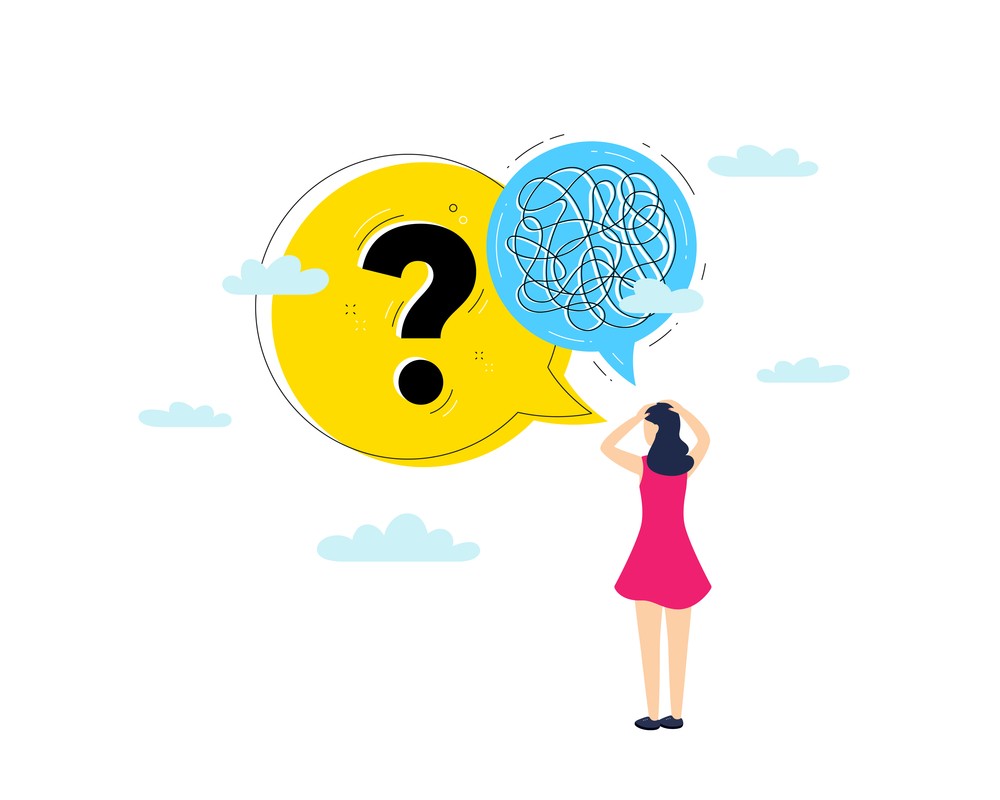
What are effective natural remedies for anxiety?
Several natural remedies can help with anxiety relief. Some of these include regular exercise, adequate sleep, and incorporating relaxation techniques such as deep breathing exercises and meditation. Remember to consult a healthcare professional before starting any new treatment for anxiety.
How can I treat anxiety without medication?
Treating anxiety without medication may involve various approaches, such as cognitive-behavioral therapy (CBT), mindfulness-based stress reduction (MBSR), and exposure therapy. Maintaining a healthy lifestyle with proper diet, exercise, and sleep can help alleviate anxiety symptoms.
Which supplements are helpful for anxiety relief?
Numerous supplements, such as magnesium, vitamin B complex, and omega-3 fatty acids, have been studied for their potential anxiety-relieving effects. However, one should consult with a healthcare professional before taking any supplements to ensure they are safe and appropriate for individual needs.
Can lifestyle changes help with anxiety?
Yes, lifestyle changes can help manage anxiety. Regular exercise, a balanced diet, and proper sleep are essential. Reducing caffeine and alcohol intake, practicing mindfulness, and maintaining a supportive social network can relieve anxiety.
Are there any herbal solutions for anxiety?
Herbal remedies like chamomile, valerian root, and passionflower have been explored for their potential to relieve anxiety symptoms. Although some individuals may find relief with these remedies, it’s crucial to consult a healthcare professional before taking herbal supplements, as they may interact with medications or have potential side effects.
What are some relaxation techniques for anxiety relief?
Several relaxation techniques can help alleviate anxiety, such as deep breathing exercises, progressive muscle relaxation, and guided imagery. Additional practices include meditation, yoga, and tai chi. Finding a relaxation technique that resonates with the individual can help manage anxiety symptoms.
As someone who has experienced anxiety/depression while navigating a difficult custody battle with a narcissistic ex-partner who refuses to comply with court orders, I know how important it is to prioritize self-care and seek different tools for managing mental health challenges. While I take Lexapro to manage my symptoms, I’ve also discovered the benefits of spending time in nature for anxiety relief.
Despite my ex-partner’s severe narcissism and her complete alienation from our children, I remain committed to fighting for their well-being and managing my mental health. I take long walks daily, often in natural settings like parks or forests, to help me find peace and calm in difficult circumstances.
To provide support and guidance to others who may be facing similar challenges, I write articles about mental health and narcissism. I hope to inspire others to seek out different self-care practices for managing their mental health challenges, whether it be through medication, therapy, or spending time in nature. Anyone can overcome their mental health issues with the right support and resources.
- 3 Ways Wearing a Hat Can Help Lower Your Stress Levels - April 19, 2025
- Breaking the Silence: Why Men’s Mental Health Matters More Than Ever - April 15, 2025
- How to Transform a Home’s Patio Space into a Relaxing Space - March 23, 2025
This site contains affiliate links to products. We will receive a commission for purchases made through these links.

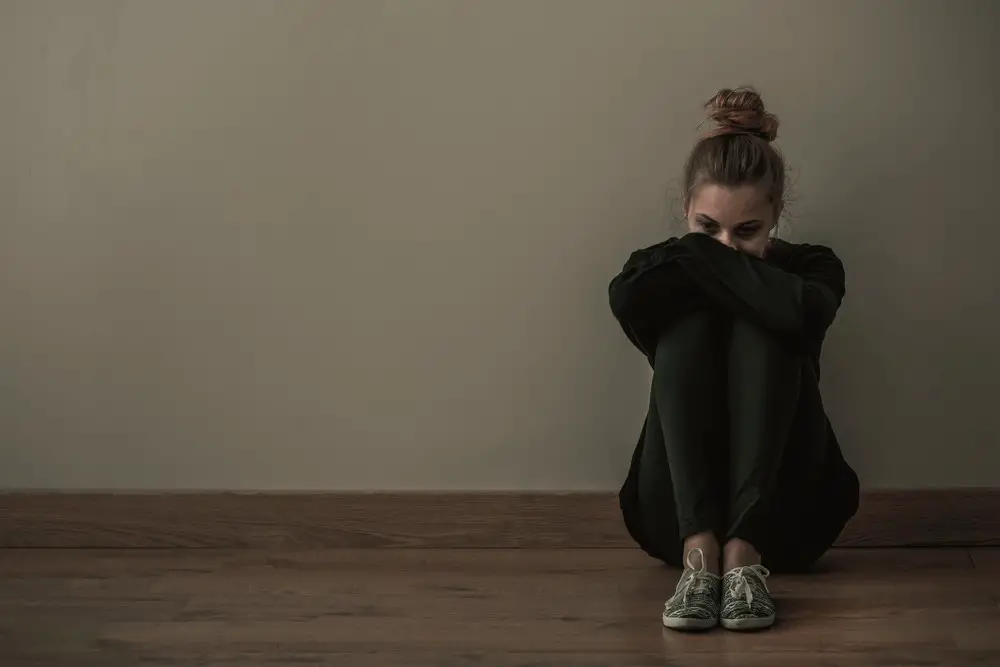
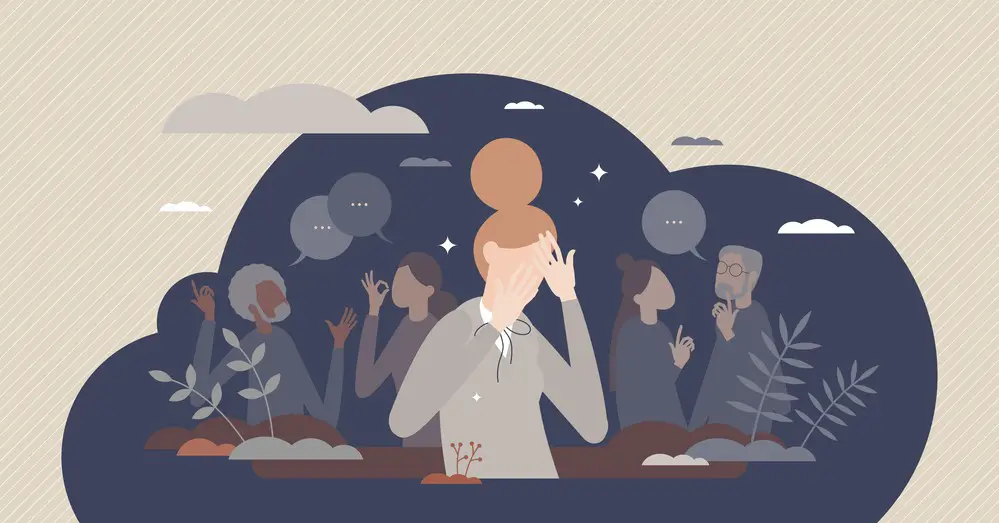 Understanding Anxiety
Understanding Anxiety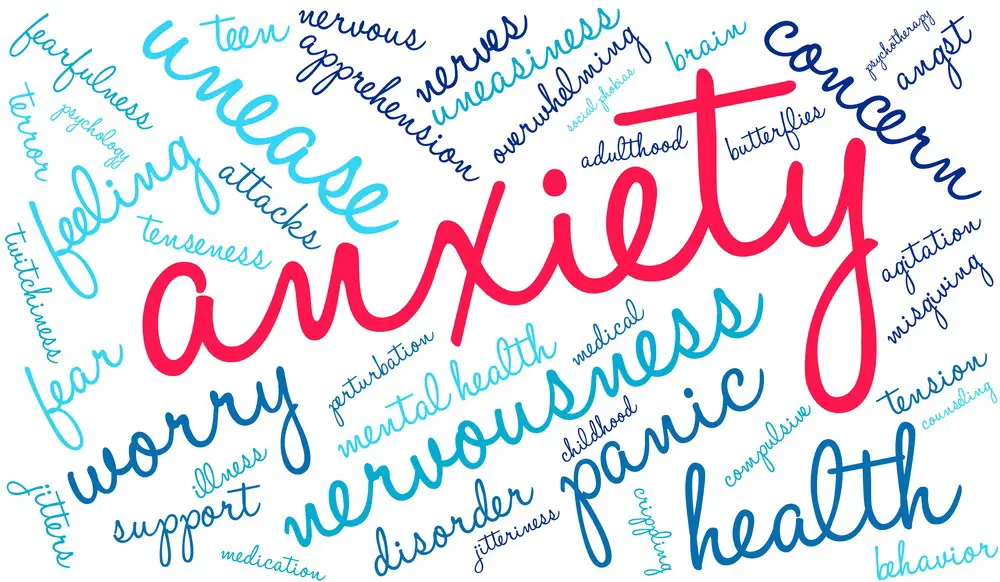 Natural Remedies for Anxiety Relief
Natural Remedies for Anxiety Relief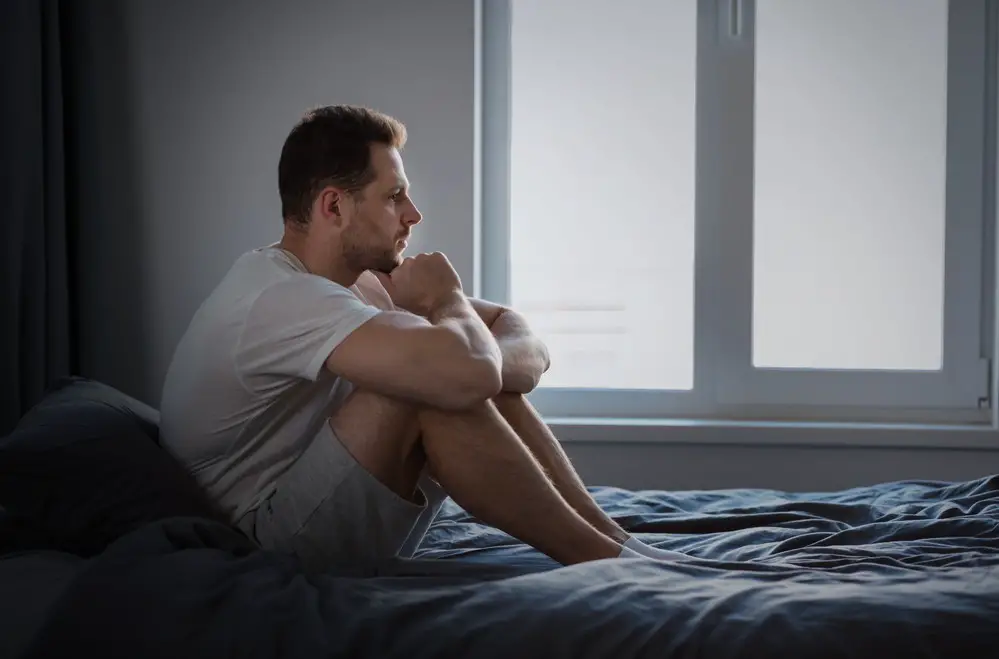 Positive Lifestyle Changes
Positive Lifestyle Changes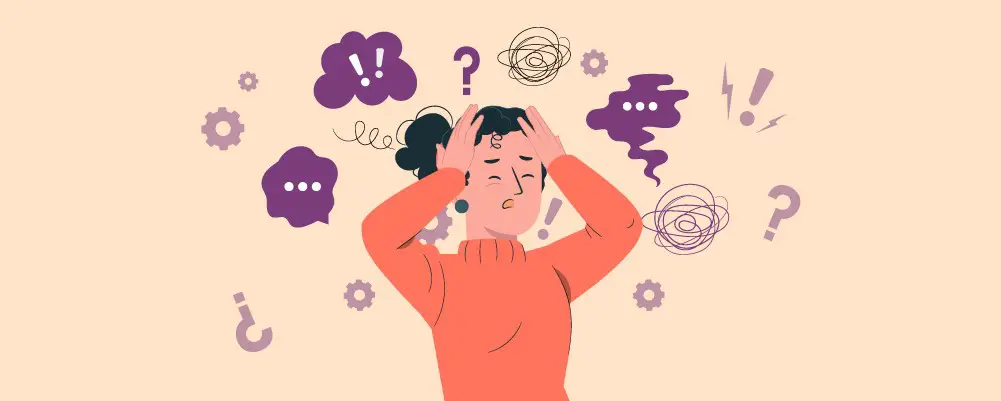 Impact of Stimulants and Relaxants
Impact of Stimulants and Relaxants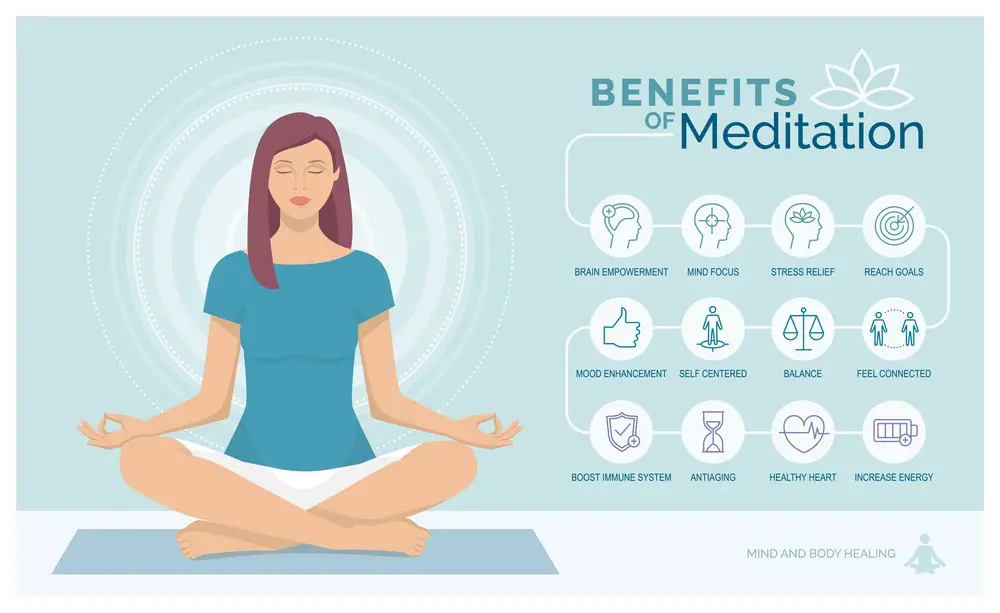 The Role of Mindfulness and Meditation
The Role of Mindfulness and Meditation Understanding and Managing Panic Disorders
Understanding and Managing Panic Disorders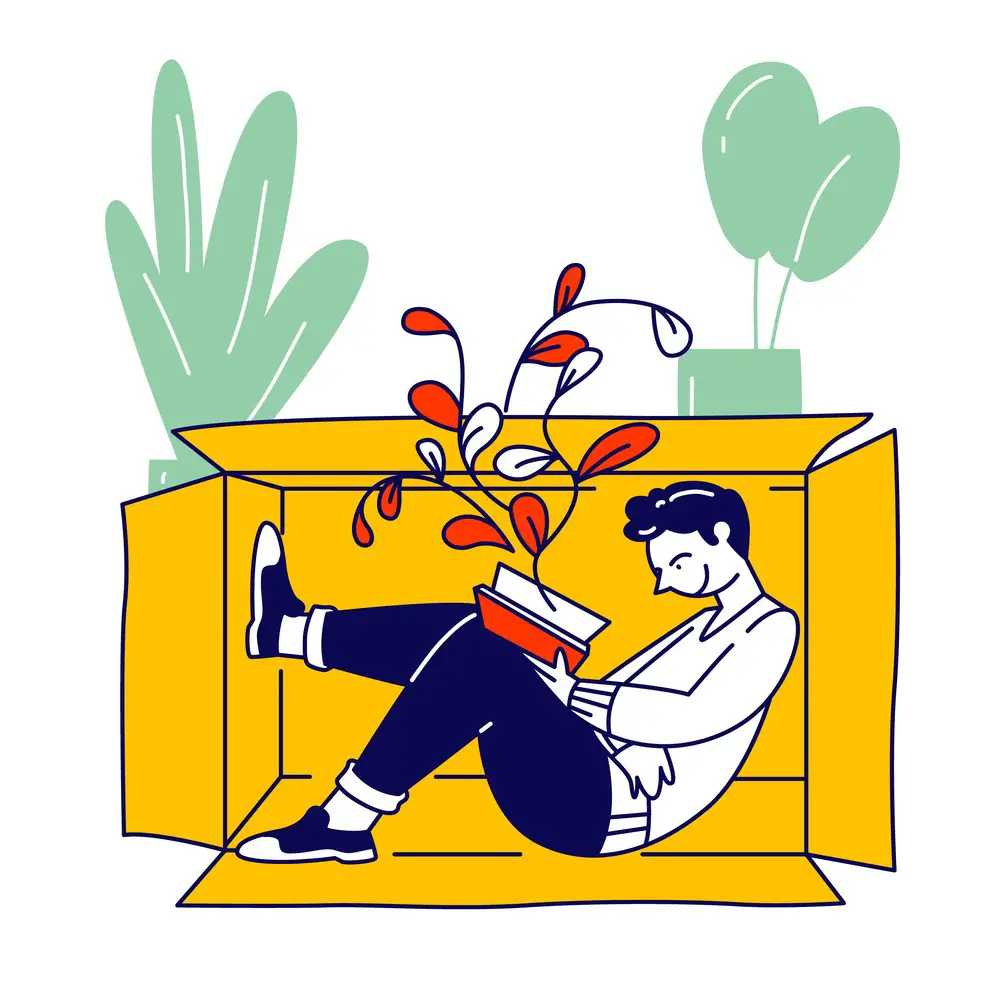 Coping with Social Anxiety
Coping with Social Anxiety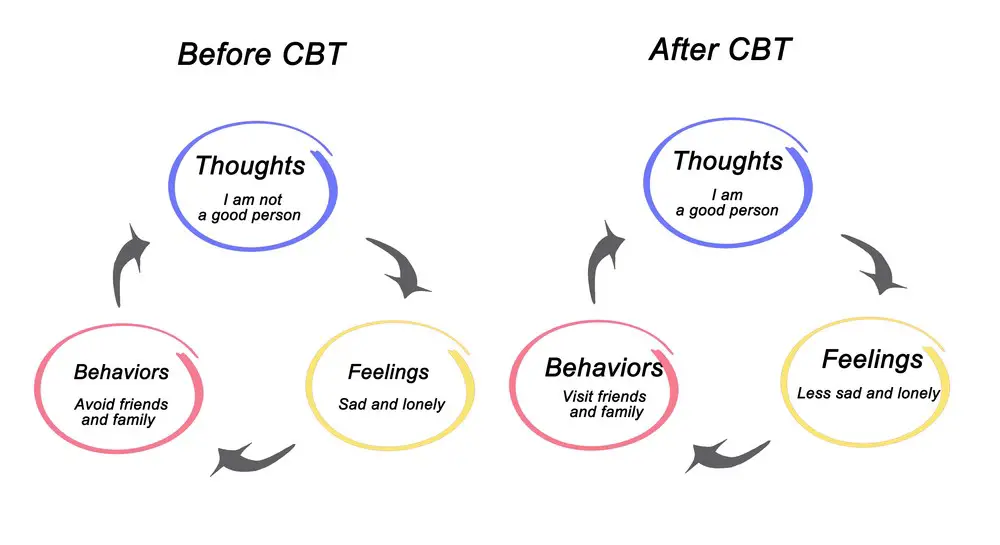 Cognitive Behavioral Therapy for Anxiety
Cognitive Behavioral Therapy for Anxiety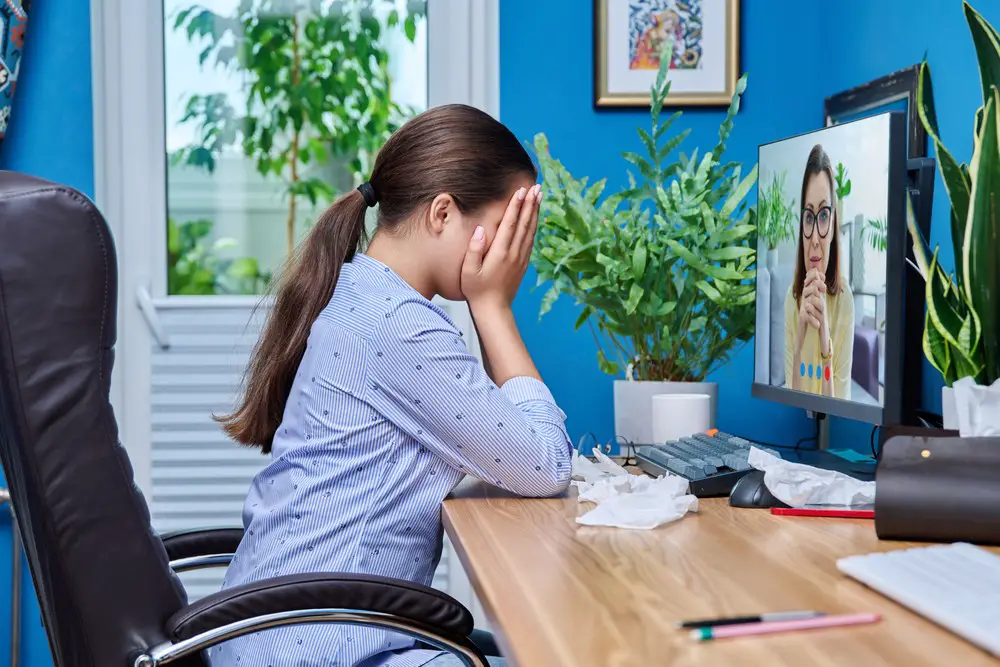 Hands-On Therapies for Anxiety Relief
Hands-On Therapies for Anxiety Relief
